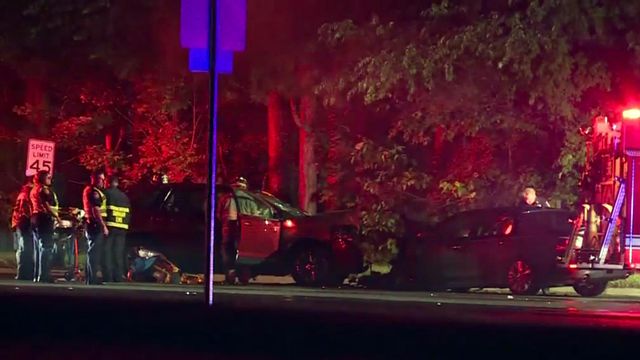Wrong-way crashes in NC spike during pandemic
The number of wrong-way crashes on North Carolina highways jumped by nearly 50 percent last year, even though fewer vehicles were on the road for several months because of pandemic related shutdowns.
Sixty-eight wrong-way crashes reported in 2020 was the highest figure in at least 20 years, according to state Department of Transportation data. Although the 13 fatalities in such crashes wasn't a record, the 82 injuries reported was.
Since 2000, the DOT has recorded 723 wrong-way crashes statewide, resulting in 200 deaths and nearly 900 injuries.
Sgt. Chris Knox, a spokesman for the Highway Patrol, said authorities haven't pinpointed any one reason for last year's spike.
"The one big thing was COVID. People were distracted, and their minds were on other things," Knox said. "That could definitely lead to a driver becoming disoriented and not paying attention to where they are at or where they are going.”
"It makes you think what’s on people’s minds," said Mary Edwards, whose son was killed in a wrong-way crash last month.
Cheston Edwards was heading toward Raleigh when a pickup slammed head-on into his car on U.S. Highway 70 in Johnston County. The pickup's driver was charged with driving while impaired and felony death by vehicle.
"When you are driving behind that steering wheel, that’s a privilege, and it’s a privilege that we should take seriously," Mary Edwards said.
Earlier this month, State Highway Patrol troopers say a drunk driver was critically injured when he slammed into a tractor-trailer while driving the wrong way on U.S. Highway 264 in Nash County.
AAA reports that, between 2000 and 2017, more than half of wrong-way crashes involved impaired drivers. Other significant factors include the older age of a driver and driving without a passenger.
Wrong-way crashes are harder to anticipate than drunk driving or speeding, Knox said.
"The choice to speed is one that everyone makes before they speed or the choice to look at a text, but no one typically chooses to drive the wrong way," he said.
Although there usually isn't much time to avoid a collision in a head-on crash, Knox said keeping your eyes on the road and slowing down could save your life.
"Even if you can get your speed decreased and you are struck by a vehicle coming straight at you, you now decreased the force you are bringing into this – 65 [mph] going into 65 is a lot, that’s something hard to overcome," he said.












